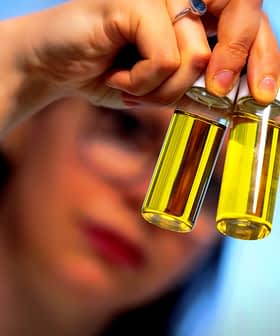Our country is on the cutting-edge of research into the link between olive oil and health. In recent years, our scientists have succeeded in demonstrating that certain components present in this foodstuff contribute to preventing the appearance and development of some of the most common diseases in the western world. For the first time in history, Spanish medicine has coincided in one sole forum offering the possibility of sharing knowledge acquired to date and transmitting it to nutrition professionals.
Popular knowledge, handed down from generation to generation, has been attributing infinite health properties to olive oil for centuries. People from the Mediterranean basin have traditionally used this natural product in an attempt to more or less immediately solve all sorts of aches and pains, often due to dermatological or intestinal conditions.
Nonetheless, in spite of the fact that we might already have intuitively understood this, the therapeutic and medicinal efficacy of olive oil has not been scientifically demonstrated until relatively recent times.
In this sense, the majority of the benefits found are observed following prolonged and continuous intake of virgin and extra virgin oils, which exert a protective effect against the development of pathologies such as myocardial infarction, stroke, diabetes, certain types of cancer and, even obesity, among many others.
More and more health pages of both the specialised and general press reflect the new progress made in this area, although before now no context in which all of them could be analysed and debated had been found.
Spain: research and production leader
Apart from being considered the main world producer, Spain is also positionedat the forefront of scientific research into olive oil. With the goal of sharing all the knowledge acquired to date and making an exchange of experiences possible, the I Medical Congress: Olive Oil, Nutrition and Health was recently organized by the Interprofesional del Aceite de Oliva Español, together with the Fundación Patrimonio Comunal Olivarero and the Fundación Dieta Mediterránea; with the co-financing of the International Olive Council.
This encounter took place in the headquarters of the professional medical association, Ilustre Colegio Oficial de Médicos de Madrid, on November 4 and 5. The opportunity for the most prominent figures involved in the main lines of research currently open to meet and share their discoveries with a target mainly made up of doctors, nutritionists, medical students and healthcare professionals.
Latest lines of research
The occasion represented a unique opportunity to hear, from the mouths of the protagonists themselves, the latest advances linking the benefits of olive oil with health and nutrition.
In this context, Professor Eduard Escrich, whom we interviewed in edition nº 4 of OLIVARAMA, highlighted the most relevant points of an extensive research study which he has been heading up for the last 28 years from the Cellular Biology and Immunology Department of the Medicine Faculty of the Universidad Autónoma de Barcelona. The results obtained in this study demonstrate that those patients with a diet rich in olive oil tend to develop a less malignant and aggressive form of breast cancer.
For their part, the doctors Ramón Estruch and Miguel Ángel Martínez took advantage of their talk to reveal the details of the Predimed macrostudy which they have been coordinating for the last 7 years with a view to discovering the effects of the Mediterranean Diet on the primary prevention of cardiovascular disease. Among their conclusions is the fact that people using this ingredient in their diet present a lower risk of diabetes, hypertension, depression and, above all, cardiovascular diseases.
These same effects were also observed in the research studies that doctor Jaime Masjuan, from the Hospital Ramón y Cajal in Madrid, presented in the area of stroke prevention. This study, conducted in France and known as “The three cities”, clearly showed that people who regularly consume olive oil are less likely to have a cerebrovascular accident. Masjuan also revealed that at present work is ongoing to demonstrate the influence of this product on diseases such as Parkinson’s or Alzheimer’s.
José López Miranda, on behalf of the Lipids Unit of the University of Córdoba, one of the most vanguard centres in our country in this field of medicine, reminded us of the results showing the positive effects of olive oil on the endothelium, the tissue coating the inside of blood vessels. In this sense, consumption of this product protects the structure of the aforementioned tissue from oxidative inflammation, that tends to give rise to multiple aches and pains.
To sum up, Doctor Francisco Pérez Jiménez, from the University Hospital Reina Sofía of Córdoba, like the rest of his colleagues, supported the scientific evidence that olive oil is healthy, especially in the prevention of the most widespread diseases among the population of developed countries.
A common request
Having said this, the Congress participants also made their discontent in the face of the European legislation which, unlike the North American, has not yet authorised labelling the extra virgin and virgin olive oils as healthy products.
This is why they petitioned the relevant authorities to accelerate this decision-making with a view to allowing us to soon hold a bottle in our hands that allows us to read that it is a foodstuff rich in monounsaturated fatty acids and polyphenols which help prevent oxidative stress.
Olivarama articles also appear in Olivarama magazine and are not edited by Olive Oil Times.








